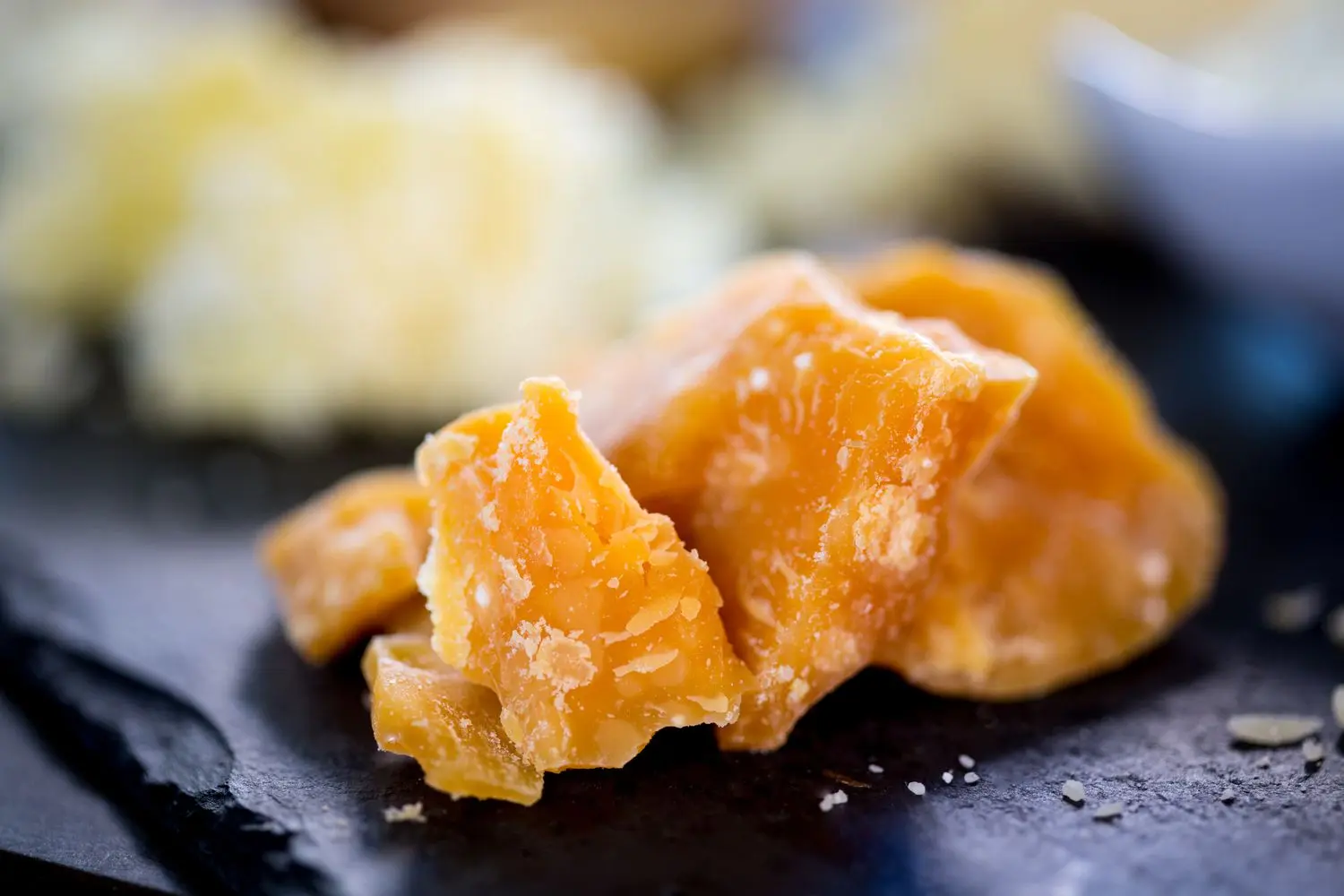Gouda cheese is a popular type of cheese that originated in the Netherlands. It is known for its creamy texture, mild flavor, and colorful wax-coated rind. One question that often arises is whether all Gouda cheese is smoked. In this article, we will explore the different varieties of Gouda cheese and clarify whether smoking is a common practice in its production.
What is Gouda Cheese?
Gouda cheese is a semi-firm cheese made from cow's milk. It has a pale yellow to deep orange color and a range of flavors that can vary from mildly sweet and buttery when young to intensely nutty and caramelized when aged for a year or more. Gouda cheese is widely available as an artisan cheese suitable for cheese plates and as a younger cheese that slices and melts well for sandwiches.
The name Gouda comes from the town of Gouda in the Netherlands, where this style of cheese originated in the 1500s. It is named after the town's bustling cheese markets, which played a significant role in the cheese's production and trade.
How is Gouda Cheese Made?
Gouda cheese is made from either raw or pasteurized milk. The milk is heated, and cultures are added to begin the fermentation process. Rennet is then added to coagulate the milk into a gel-like curd. The curds are cut to expel whey and reduce moisture.
One of the defining characteristics of Gouda cheese is its low moisture content and sweet taste. To achieve these attributes, the curds are scalded with hot water and stirred, which expels moisture. The whey is then rinsed away, taking much of the lactose with it. This results in a sweeter-tasting cheese.
The curds are then hooped into large circular molds and pressed to remove even more moisture. Afterward, the cheese wheels are soaked in a salt brine and coated with a thin layer of food-grade wax, giving them their signature shiny and colorful exterior. The wheels are then aged in cheese caves for several months to several years, developing their flavors and textures.
Types of Gouda Cheese
The main difference in styles of Gouda cheese is the age. Young Gouda cheese is typically softer, milder in flavor, and lighter in color. It is often used for slicing and melting in sandwiches, macaroni and cheese, and other baked dishes.
Aged Gouda cheese, on the other hand, has a deeper color, a hard and crystalline texture, and more concentrated flavors. It can have notes of toffee, brown butter, and toasted nuts. Aged Gouda cheese is often grated over pasta dishes or enjoyed on a cheeseboard.
Smoked Gouda Cheese
Now, let's address the question of whether all Gouda cheese is smoked. The answer is no. While smoked Gouda cheese is a popular variety, not all Gouda cheese is smoked. Traditional Gouda cheese has a natural flavor and does not undergo the smoking process.
Smoked Gouda cheese, however, is a unique variation that is smoked over smoldering wood chips, giving it a distinct smoky flavor and aroma. The smoking process adds depth to the cheese's taste and can complement various dishes.
It's important to note that smoked Gouda cheese typically has a brownish rind, which is edible and adds to the overall flavor experience. If you are looking for smoked Gouda cheese, make sure to check the label or ask your cheesemonger for the specific variety.
Substitutes and Uses
If you are unable to find Gouda cheese or prefer not to use it in a recipe, there are suitable substitutes available. For young Gouda cheese, mild, semi-firm melting cheeses like Edam, Monterey Jack, Havarti, deli Muenster, and mild Cheddar can be used. For aged Gouda cheese, hard, strong-flavored cheeses like Parmesan, Gruyère, and other aged Alpine cheeses are good alternatives.
Both young and aged Gouda cheese can be used in a variety of dishes. Young Gouda cheese is ideal for slicing and melting in sandwiches, macaroni and cheese, casseroles, and other baked dishes. Aged Gouda cheese, with its bold flavors and hard texture, is excellent for grating over pasta dishes or enjoying on a cheeseboard.
Storage and Handling
To properly store Gouda cheese, it is recommended to keep it in its original packaging in the cheese drawer or crisper of your refrigerator. After opening, rewrap any leftover Gouda cheese in cheese paper or parchment paper. This helps protect the cheese from drying out while allowing for some air exchange.
Young Gouda cheese can be wrapped tightly in plastic, sealed in a zip-top bag, and frozen for up to two months. However, its texture may become crumbly after thawing, so it is best to use it in baked dishes or other applications where the cheese will be melted. Aged Gouda cheese should not be frozen.
In conclusion, not all Gouda cheese is smoked. Gouda cheese comes in various styles and ages, with smoked Gouda cheese being a distinct variation. While traditional Gouda cheese has a natural flavor, smoked Gouda cheese undergoes the smoking process, resulting in a smoky taste and aroma. Both young and aged Gouda cheese have their uses and can be enjoyed in a variety of dishes. It's important to store and handle Gouda cheese properly to maintain its quality. So, whether you prefer the natural flavor of Gouda cheese or the smoky notes of smoked Gouda cheese, there is a Gouda variety to suit your taste preferences.
If you want to know other articles similar to Is all gouda cheese smoked? exploring varieties and production you can visit the Cheese category.


Related Articles